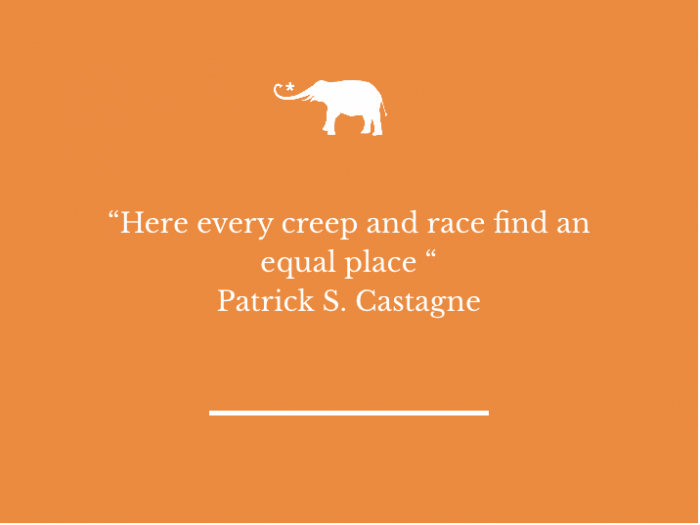“…where every creed and race find an equal place and may God bless our nation.”
These are the words in the Trinidad national anthem, yet the way immigrants are treated in this country does not reflect the sentiment Patrick S. Castagne had in mind.
As a Venezuelan woman living in Trinidad for the last 49 years, Venezuelans are the immigrants I am most familiar with and dearest to my heart. I, too, have been on the receiving end of a lot of microaggressions from strangers and friends alike. These microaggressions and not-so microaggressions have escalated in recent years with the influx of Venezuelan refugees. A scarcity mentality has surfaced, bringing with it racism and xenophobia.
I feel called to highlight the struggles of the Venezuelan community who are living in this country.
A few years ago when the influx of Venezuelan refugees happened, many articles on social media were covering this issue, and the public comments were heartbreaking. Sometimes, I would continue scrolling or close the articles as it was hard to read the insults and remain dry-eyed.
On a personal level, every time I meet someone I have not seen for a while, the first question they ask me is, “When are you going back?” or, “I thought you were gone.” Regardless of how long we live in this country, we can never belong.
When one of my daughters was in her teen years, I remember her coming to me, feeling emotional, about the fact that a close, adult friend of mine, was talking ill about Venezuelans directly to her face, while fully knowing that her mother is Venezuelan. The audacity of this woman! Of course, my daughter, out of respect for the woman, didn’t know how to confront her but remained feeling as though she had betrayed her own mother.
Venezuelan women are also seen as exotic. Some of them are mixed-race and, to use the American term, others are white-passing. This puts them in the firing line of Trinidadian women’s wrath, rivalry, and jealousy.
While visiting my home, a friend once told me that all Venezuelan women have plastic surgery. In other words, we’re frivolous and superficial. We have to develop a thick skin to deal with this level of contempt and disrespect and preserve our mental health.
There’s a widespread romantic idea that once we immigrate, our lives will improve by virtue of the opportunity available to us. We will be able to bring our dreams into reality. However, the fact is the life of a Venezuelan immigrant in Trinidad is challenging. They work at jobs they’re overqualified for in return for little pay. They face discrimination from the Trinidadian society and live covered in shame, mockery, and are subject to physical and emotional violence.
Young women are being trafficked and initiated into a life of sexual indignities. Others are treated with contempt while being seen as inferior solely on the basis of being immigrants.
Trinidadians stereotype Venezuelan men as criminals and women as prostitutes. The reality is that in recent years, due to the political situation in Venezuela, many professionals are unable to find jobs and are living under the poverty line. As a result, many have immigrated to different South American countries while a small number have come to Trinidad. Colombia hosts the largest number of Venezuelan refugees. Peru also hosts over 1,000,000 displaced Venezuelans, followed by Brazil, Guayana, and Cuba.
Increased crime is frequently cited as the main reason why Trinidad has become less friendly toward Venezuelan immigrants and refugees. However, this isn’t correct as Venezuelans, by far, commit fewer crimes compared to the locals.
Further, the language barrier doesn’t permit some of these professionals to work in their fields, so they find themselves doing menial jobs to provide for themselves and their families.
During the oil-boom days, Venezuelans used to come to Trinidad to study and spend their holidays and would leave once they were done. No one wants to leave their country to subject themselves to a life of struggle unless the circumstances in their country are dire. Immigrants hope for a better life. But in most cases, the hope of Venezuelan immigrants in Trinidad never materializes. Even when they secure food, the lack of respect and dignity robs the individual of the promised fulfillment and joy of life.
I asked my niece what her experience has been as an immigrant in Trinidad. Below is her response:
“You get more humble because there are many things limited to citizens only. But you adjust and eventually, it does not bother you. It is when locals start to speak about your country or its citizens that you feel a tightness in your chest because you understand both sides and cannot do anything about it.”
The culture of giving picong and openly shaming people for their differences needs to stop as we strive to honor the values and inclusion we have pledged to uphold.
We have to go numb not to be in a constant state of grief and broken-heartedness. It affects our self-esteem and ability to show up for ourselves and the world as our most brilliant selves.
I read somewhere, “We don’t fear those whose stories we know.” Sharing our stories and learning about others is the only way we could eliminate racism, xenophobia, or any other type of bigotry we encounter within or around ourselves. I invite Trinidadians to befriend Venezuelans—to get to know their culture, language, and struggles in order to learn how to see them as human beings just like themselves.
Let’s create something good out of the Trinidad national anthem message:
“May every create and race find an equal place in this beautiful twin island nation.”













Read 3 comments and reply